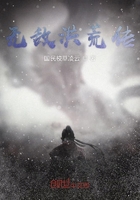"Mowers ask a high price nowadays," said Praskovya. "One rouble and forty kopecks a day."People kept coming and coming from the fair at Kazanskoe: peasant women, factory workers in new caps, beggars, children. . . . Here a cart would drive by stirring up the dust and behind it would run an unsold horse, and it seemed glad it had not been sold; then a cow was led along by the horns, resisting stubbornly; then a cart again, and in it drunken peasants swinging their legs. An old woman led a little boy in a big cap and big boots; the boy was tired out with the heat and the heavy boots which prevented his bending his legs at the knees, but yet blew unceasingly with all his might at a tin trumpet. They had gone down the slope and turned into the street, but the trumpet could still be heard.
"Our factory owners don't seem quite themselves . . ." said Elizarov. "There's trouble. Kostukov is angry with me. 'Too many boards have gone on the cornices.' 'Too many? As many have gone on it as were needed, Vassily Danilitch; I don't eat them with my porridge.' 'How can you speak to me like that?' said he, 'you good-for-nothing blockhead! Don't forget yourself! It was I made you a contractor.' 'That's nothing so wonderful,' said I. 'Even before I was a contractor I used to have tea every day.' 'You are a rascal . . .' he said. I said nothing. 'We are rascals in this world,' thought I, 'and you will be rascals in the next. . . .' Ha-ha-ha! The next day he was softer. 'Don't you bear malice against me for my words, Makaritch,' he said. 'If I said too much,' says he, 'what of it? I am a merchant of the first guild, your superior -- you ought to hold your tongue.' 'You,' said I, 'are a merchant of the first guild and I am a carpenter, that's correct. And Saint Joseph was a carpenter, too. Ours is a righteous calling and pleasing to God, and if you are pleased to be my superior you are very welcome to it, Vassily Danilitch.' And later on, after that conversation I mean, I thought: 'Which was the superior? A merchant of the first guild or acarpenter?' The carpenter must be, my child!" Crutch thought a minute and added:
"Yes, that's how it is, child. He who works, he who is patient is the superior."By now the sun had set and a thick mist as white as milk was rising over the river, in the church enclosure, and in the open spaces round the factories. Now when the darkness was coming on rapidly, when lights were twinkling belo w, and when it seemed as though the mists were hiding a fathomless abyss, Lipa and her mother who were born in poverty and prepared to live so till the end, giving up to others everything except their frightened, gentle souls, may have fancied for a minute perhaps that in the vast, mysterious world, among the endless series of lives, they, too, counted for something, and they, too, were superior to someone; they liked sitting here at the top, they smiled happily and forgot that they must go down below again all the same.
At last they went home again. The mowers were sitting on the ground at the gates near the shop. As a rule the Ukleevo peasants did not go to Tsybukin's to work, and they had to hire strangers, and now in the darkness it seemed as though there were men sitting there with long black beards. The shop was open, and through the doorway they could see the deaf man playing draughts with a boy. The mowers were singing softly, scarcely audibly, or loudly demanding their wages for the previous day, but they were not paid for fear they should go away before to-morrow. Old Tsybukin, with his coat off, was sitting in his waistcoat with Aksinya under the birch-tree, drinking tea; a lamp was burning on the table.
"I say, grandfather," a mower called from outside the gates, as though taunting him, "pay us half anyway! Hey, grandfather."And at once there was the sound of laughter, and then again they sang hardly audibly. . . . Crutch, too, sat down to have some tea.
"We have been at the fair, you know," he began telling them. "We have had a walk, a very nice walk, my children, praise the Lord. But an unfortunate thing happened: Sashka the blacksmith bought some tobacco and gave the shopman half a rouble to be sure. And the half rouble was a false one" --Crutch went on, and he meant to speak in a whisper, but hespoke in a smothered husky voice which was audible to everyone. "The half-rouble turned out to be a bad one. He was asked where he got it. 'Anisim Tsybukin gave it me,' he said. 'When I went to his wedding,' he said. They called the police inspector, took the man away. . . . Look out, Grigory Petrovitch, that nothing comes of it, no talk. . . .""Gra-ndfather!" the same voice called tauntingly outside the gates. "Gra-andfather!"A silence followed.
"Ah, little children, little children, little children . . ." Crutch muttered rapidly, and he got up. He was overcome with drowsiness. "Well, thank you for the tea, for the sugar, little children. It is time to sleep. I am like a bit of rotten timber nowadays, my beams are crumbling under me. Ho-ho- ho! I suppose it's time I was dead."And he gave a gulp. Old Tsybukin did not finish his tea but sat on a little, pondering; and his face looked as though he were listening to the footsteps of Crutch, who was far away down the street.
"Sashka the blacksmith told a lie, I expect," said Aksinya, guessing his thoughts.
He went into the house and came back a little later with a parcel; he opened it, and there was the gleam of roubles -- perfectly new coins. He took one, tried it with his teeth, flung it on the tray; then flung down another.















